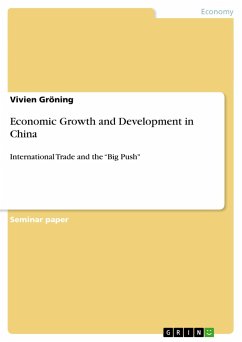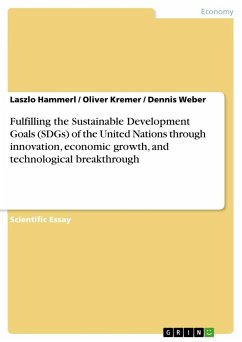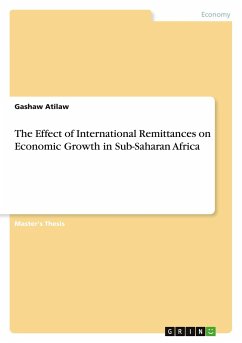Seminar paper from the year 2006 in the subject Business economics - Miscellaneous, University of Hamburg, language: English, abstract: If the need for a "Big Push" survives in an economy that is open to international trade and capital movements, or if openness to trade and capital movements is sufficient to overcome all poverty traps, these questions have daunted development economics since its inception (Jaime et al. 1997). In the last two hundred years, every country with high development and productivity rates has industrialised. While in the eighteens century Britain, and in the twenties century Korea and Japan grew rich, other countries remained poor. One of the discussed causes for this underdevelopment might be the small domestic market. While the idea started with Rosenstein-Rodan (1943)1, who thought the solution would be aid and investment programs, since the 1960s advocates tend to the Idea that openness of the economy resolve the problem of a small domestic market. The theory is that openness would induce an export-led "Big Push" in terms of simultaneous growth over different sectors (Murphy et al.1989, p.1003). In the current discussion the "Big Push" induced by aid has its comeback in the Millennium Development Goals from the UN (Easterly 2005, p.3). The focus of this paper is on the East Asian countries, where the export-promotion-policy had had an important role. But Trindade (2005, p.41) was the first author who interpreted the coordination-problem as solvable with solely export-promotion, because of the naturally coordination effect of exports (Asche, 2005, p.24 gloss 28). So the question is not if exports are good for an economy, but if exports can induce a "Big Push" and thus making aid superfluously.
Hinweis: Dieser Artikel kann nur an eine deutsche Lieferadresse ausgeliefert werden.
Hinweis: Dieser Artikel kann nur an eine deutsche Lieferadresse ausgeliefert werden.








